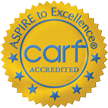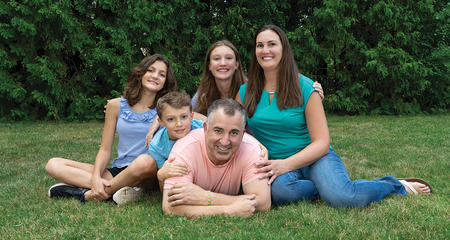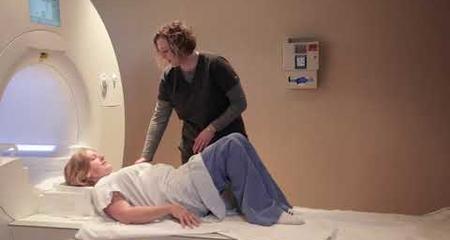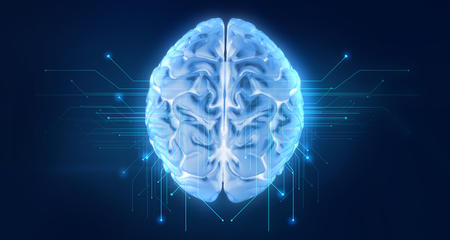Our Brain Injury Program provides treatment for all types of traumatic brain injuries from severe to mild, including concussions, brain contusions, penetrating brain injuries and acquired brain injuries (ABI).
A concussion is considered a milder form of traumatic brain injury. Most people recover quickly from concussions. If you feel you have signs and symptoms of concussion, please contact your primary care physician or call 414-805-6644 to find a provider near you.
If you’ve experienced a concussion with persistent cognitive symptoms, your primary care provider may refer you to our Mild Traumatic Brain Injury Clinic. The clinic is staffed by a team of multidisciplinary specialists, including neuropsychologists and physical medicine and rehabilitation providers who collaborate to enhance the recovery process and limit disability.
As part of an academic medical center, the Brain Injury Program is also involved in research and clinical trials. See our current list of clinical trials.

Neuro Intensive Care and Acute Care Units
The Neuro Intensive Care Unit (NICU), Acute Care units and Rehabilitation units are available to serve patients with different types of neurological injuries, including brain injuries. The NICU is equipped with state-of-the-science monitoring equipment and is staffed by a skilled and experienced team of physicians and nurses. Experts from other disciplines, such as Urology and Plastic Surgery, are readily available for consultation, further enhancing the recovery process and promoting a faster return to the community.
Neuropsychology
Patients diagnosed with a traumatic brain injury may experience cognitive and behavior changes. Our board-certified neuropsychologists provide evaluations to understand how illness or injury to the brain may affect a patient’s behavior and mental process and thus recovery.
Our neuropsychologists are part of the specialized Traumatic Brain Injury Clinic held weekly with Physical Medicine and Rehabilitation to follow patients early in their recovery from mild to moderate brain injury. Results of cognitive testing of memory, attention, and processing speed is used to make recommendations for treatment as well as to determine when it is appropriate to return to normal activities such as work and driving.
Rehabilitation Program
Rehabilitation starts on the first day of admission and continues after discharge. The Brain Injury Rehabilitation Program at Froedtert Hospital is a unique program in Wisconsin that tailors rehabilitation to patients' individual needs. There, they work with rehabilitation staff to relearn daily activities such as walking and eating; to improve speech, memory and concentration; and to develop strategies for adapting to residual effects of brain injury. In 2020:
- 130 patients with brain injuries were admitted to the rehabilitation program.
- The average length of stay was 11.2 days.
- Upon discharge, 84.7% returned home, while the remaining patients transferred to subacute or skilled nursing facilities.
- 95.4% of patients are able to perform self-care skills independently after discharge.
- Patient satisfaction with the program is 3.7 out of 4.
The brain injury rehabilitation program is accredited by the Commission on Accreditation of Rehabilitation Facilities (CARF), a designation that recognizes its adherence to strict requirements for hospital programs providing comprehensive rehabilitation services.
Accredited as a Brain Injury Rehabilitation Program

Froedtert Hospital Brain Injury Rehabilitation Program is proud to be accredited by the Commission on Accreditation of Rehabilitation Facilities (CARF), a recognition of our commitment to excellence in patient care.
Mild Traumatic Brain Injury Clinic
The Mild Traumatic Brain Injury Clinic provides follow-up evaluation and care for individuals who have had a mild brain injury (injuries in which a person loses consciousness only very briefly or not at all), to monitor any subtle problems that may occur in the weeks following the injury.
The clinic is staffed by a team of multidisciplinary specialists, neuropsychologists, physical medicine and rehabilitation physicians, speech, physical, and occupational therapists. They collaborate further enhancing the recovery process and limit disability.
Mild Traumatic Brain Injury at a Glance*
- Loss of consciousness is very brief, usually a few seconds or minutes.
- Loss of consciousness does not have to occur — the person may be dazed or confused.
- Testing or scans of the brain may appear normal.
- A mild traumatic brain injury is diagnosed only when there is a change in the mental status at the time of injury — the person is dazed, confused, or loses consciousness. The change in mental status indicates that the person’s brain functioning has been altered, this is called a concussion.
- A concussion is a brain injury.
- A concussion is the most common type of traumatic brain injury.
* Source: The Brain Injury Association of America’s Web site: www.BIAUSA.org
Virtual Visits Are Available
Safe and convenient virtual visits by video let you get the care you need via a mobile device, tablet or computer wherever you are. We'll assess your condition and develop a treatment plan right away. To schedule a virtual visit, call 414-777-7700.
BLOGS, PATIENT STORIES, VIDEOS AND CLASSES






